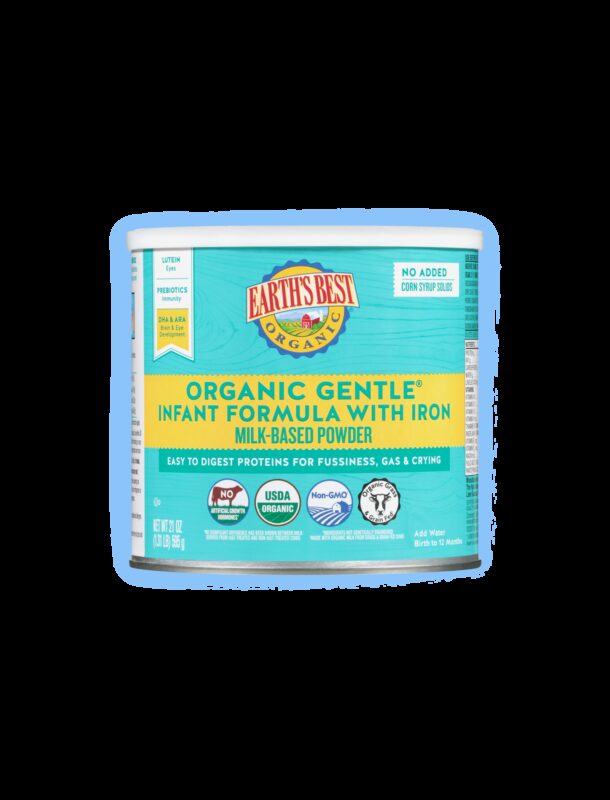
Earth's Best Pediatrician
Gas in Babies and Toddlers: What’s Normal, Common Culprits and What to Do!
All people pass gas! Gas is simply a part of how a healthy digestive system works. In fact, it is perfectly normal to pass gas anywhere from six to twenty times a day. Even if a minor discomfort (gassiness can sometimes even keep toddlers up at night), gas is typically not related to a serious health problem and will often clear up on its own. When gas becomes painful or bothersome for your little one however, then it is important to get in touch with your pediatrician.
What are Common Symptoms of Gassiness in My Baby and Toddler?
Symptoms of gassiness can include:
- Passing gas/flatulence
- Abdominal bloating
- Mild abdominal discomfort
- Belching
- Extra fussiness
- Physical discomfort (including drawing legs up into the belly)


It is important to differentiate between gas that is painful and gas that is not. If your little one is passing gas frequently but seems happy and playful and without abdominal pain, then there is no reason to intervene or make changes.
Infants can have more gas than older children and adults because their digestive system is still developing. Plus, they are still getting the hang of how to eat, and it can be common for them to swallow a bit more air as they are learning.
It is important to differentiate between gas that is painful and gas that is not. If your little one is passing gas frequently but seems happy and playful and without abdominal pain, then there is no reason to intervene or make changes. To help your baby get rid of unwanted gas, the AAP suggests laying your little one flat on his back and moving his legs in a bicycling motion, or to try tummy time, which can help to help push gas out.
Gas When Starting Solids
As your little one gets older and starts their journey with solid foods, you may find certain foods are at fault when it comes to increasing gassiness, burping or flatulence. Every child is different, but common culprits include: beans, cruciferous vegetables (such as broccoli, cabbage, cauliflower, kale), certain fruits, or foods high in fat or fiber. You may find it takes some time for your little one’s developing digestive system to adjust to these foods, and that is okay. Try offering smaller amounts, or taking a break and then re-introducing gradually several days later. Making sure your little one is well hydrated as you introduce solid foods (particularly high fiber foods), can also ease gassiness by helping prevent constipation.
However, if your baby seems to be in pain, has severe tenderness, or swelling in the abdomen, is vomiting or has blood in the stool, or if you suspect a food sensitivity or food allergy, you should always call your pediatrician.
Gas in Older Babies and Toddlers: Common Culprits and What to Do
Common culprits for increasing gas in older children can include:
- Juice (too much can cause gas and diarrhea in some children: the AAP recommends no juice until age 1, and no more than 4 oz (½ cup) 100 % juice ages 1-3)
- Fried and fatty foods (such as french fries)
- Beans
- Vegetables such as artichokes, asparagus, broccoli, brussels sprouts, cabbage, cauliflower, cucumbers, green peppers, onions, peas, radishes, and raw potatoes
- Fruits such as apricots, bananas, melons, peaches, pears, prunes, and raw apples
- Wheat and wheat bran
- Caffeine (such as in chocolate)
- Carbonated beverages and chewing gum (can introduce excess air into their tummies, and can contain sweeteners which create intestinal gas during digestion)
Keeping a food and symptom log can help pinpoint if specific foods are increasing your child’s symptoms. For older children, drinking lots of water and getting regular exercise and movement also helps decrease symptoms of gas and bloating. Avoiding carbonated beverages, as well as any foods, chewing gums or drinks that contain sorbitol or xylitol (zero calorie sweeteners) can also help.
If you are still unclear as to what may be causing your child’s symptoms, before you reach for an over-the-counter remedy offering gas relief for kids, always first consult with your healthcare provider so you can discuss the best approach for your little one.
This is for informational purposes only and should not be treated as medical advice. The content is not intended to be a substitute for professional medical advice, diagnosis, or treatment. Please always discuss any health and feeding concerns directly with your pediatrician. Never disregard professional medical advice or delay in seeking it because of something you have read above.
Ease the rumbly in the tummy with Earth's Best's Organic Gentle Infant Formula with Iron.


Our mission is to help little ones build healthy habits. As a member of our Earth’s Best® family, you'll receive handy emails packed with expert tips, recipes, offers, and more!




